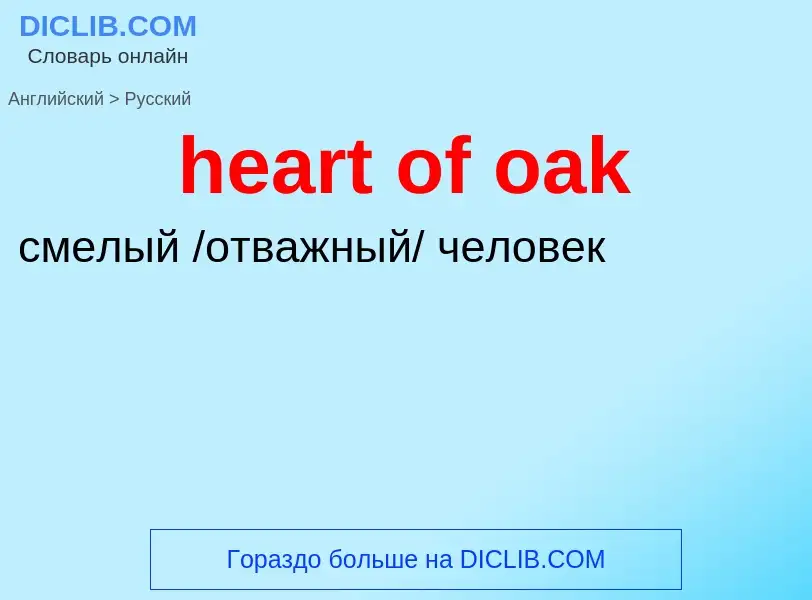Vertaling en analyse van woorden door kunstmatige intelligentie ChatGPT
Op deze pagina kunt u een gedetailleerde analyse krijgen van een woord of zin, geproduceerd met behulp van de beste kunstmatige intelligentietechnologie tot nu toe:
- hoe het woord wordt gebruikt
- gebruiksfrequentie
- het wordt vaker gebruikt in mondelinge of schriftelijke toespraken
- opties voor woordvertaling
- Gebruiksvoorbeelden (meerdere zinnen met vertaling)
- etymologie
Heart of Oak - vertaling naar russisch
[,hɑ:təv'əuk]
общая лексика
"Сердцевина дуба" (известный военно-морской марш; слова и музыка были написаны в 1770)
корабли и моряки британского флота
по словам марша:
"Heart of oak are our ships
Heart of oak are our men"
Definitie
.
Wikipedia
"Heart of Oak" is the official march of the Royal Navy. It is also the official march of several Commonwealth navies, including the Royal Canadian Navy and the Royal New Zealand Navy. It was also the official march of the Royal Australian Navy, but has now been replaced by the new march, "Royal Australian Navy".
The music of Heart of Oak was written in 1759 by composer William Boyce, the lyrics by actor David Garrick, for Garrick's pantomime Harlequin's Invasion, to which others contributed as well. The pantomime was first performed on New Year's Eve of that year at the Theatre Royal, Drury Lane, London, with Handel soloist Samuel Thomas Champnes singing Heart of Oak.
The "wonderful year" referenced in the first verse was the Annus Mirabilis of 1759, during which British forces were victorious in several significant battles: the Battle of Minden on 1 August 1759; the Battle of Lagos on 19 August 1759; the Battle of the Plains of Abraham (outside Quebec City) on 13 September 1759; and the Battle of Quiberon Bay on 20 November 1759. The last battle foiled a French invasion project planned by the Duc de Choiseul to defeat Britain during the Seven Years' War, hence the reference in the song to 'flat-bottom' invasion barges. These victories were followed a few months later by the Battle of Wandiwash in India on 22 January 1760. Britain's continued success in the war boosted the song's popularity.
The oak in the song's title refers to the wood from which British warships were generally made during the age of sail. The "Heart of oak" is the strongest central wood of the tree. The reference to "freemen not slaves" echoes the refrain ("Britons never will be slaves!") of Rule, Britannia!, written and composed two decades earlier.

